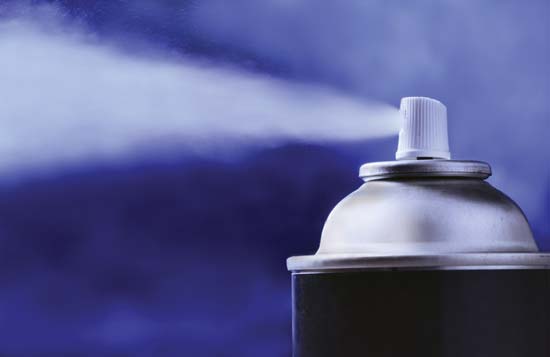
Indoor Air Pollution and Cardiovascular Disease
Posted by SoundHealth on Tuesday, December, 16 2008 and filed under Disease
Key topics: Air • Pollution • Cardiovascular

A team of scientists from Denmark and Sweden have discovered that indoor air polluted with tiny particles that are breathed in and get into the bloodstream affect the performance of blood vessels, and potentially increase the risk of cardiovascular disease, in elderly people. When the air quality was improved using filters, their blood vessels worked much better.
The study is published in the American Journal of Respiratory and Critical Care medicine and was the work of Dr Steffen Loft of the Institute of Public health, Department of Environmental health, Copenhagen, in Denmark, and colleagues.
"Reduction of particle exposure by filtration of recirculated indoor air for only 48 hours improved MVF (microvascular function - a marker of blood vessel health) in healthy elderly citizens, suggesting that this may be a feasible way of reducing the risk of cardiovascular disease."
The air we breathe is constantly being polluted with contaminants from residues of toxic chemicals. This poses a greater risk indoors as indoor pollutants are not as easily dispersed or diluted as outdoor pollutants, and therefore concentrations of toxic chemicals may be much greater indoors than outdoors.
According to the Environmental Protection Agency in the USA, indoor air pollution is one of the nation's most pressing personal health concerns. Peak concentrations of 20 toxic compounds - some linked with cancer and birth defects - were 200 to 500 times higher inside some homes than outdoors, according to a 5-year EPA study that surveyed 600 homes in six cities.
These residues are found in household products like aerosols, cosmetics, fragrances, pesticides, paint and many other common products. A full list of the hazardous chemicals in household products can be viewed at http://www.preventcancer.com/press/pdfs/hazardous.pdf
Some symptoms of reactions to indoor air pollution are a runny nose, itchy eyes, a scratchy throat, headaches, fatigue, dizziness, skin rash, and respiratory infections. Long-term exposure has been linked to lung cancer, or damage to the liver, kidneys, and central nervous system.
Tips to Reduce Effects of air pollution in the Home
- Good ventilation is crucial to maintaining low levels of indoor air pollution. Make sure that rooms are well ventilated and that windows are open so that air is exiting outside rather than being circulated indoors.
- Use products in well-ventilated areas to avoid inhaling fumes. Take plenty of fresh air breaks and use adequate skin, eye, and respirator protection where necessary.
- Read all labels carefully before using products. Be aware of their uses and dangers and only use what is needed.
- If you keep industrial solvents or pesticides and herbicides, store them outside the house in a garage or outside cabinet.
Several common house plants are known for their use in the removal of contaminants from indoor air. For example, Spider plants and Golden Pothos (commonly known as Devil's Ivy) are recommended for carbon monoxide and formaldehyde removal.
Health, fitness and longevity
Based upon the principles of health
in the Qur'an and Prophetic Traditions.
HealthyMuslim.Com
There are two bounties in which
most people lose out: good health
and free time. Al-Bukhari.